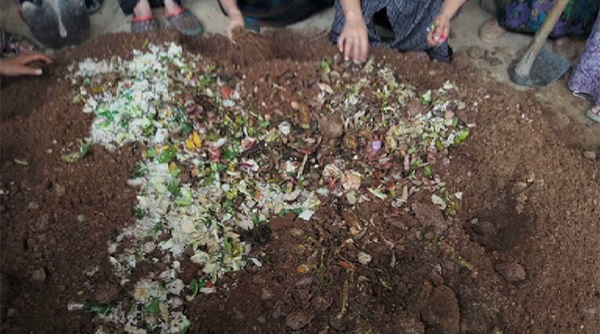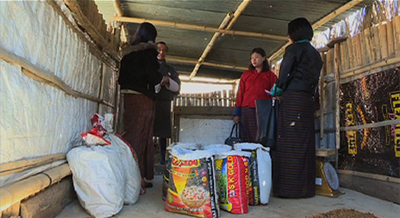 Thimphu Thromde’s new method of composting kitchen waste, Takakura method, is getting popular among many groups and individuals. At present, there are more than 13 groups and many individuals who have adopted this method. It is cost effective and can be carried out by any household.
Thimphu Thromde’s new method of composting kitchen waste, Takakura method, is getting popular among many groups and individuals. At present, there are more than 13 groups and many individuals who have adopted this method. It is cost effective and can be carried out by any household.
Implemented in June last year, Takakura method, named after its founder Dr Koji Takakura, requires a fermentative microorganism to compost organic waste. It is obtained from fermented food such as yeast, a mixture of curd, yoghurt and sugar, sawdust and decayed leaves.
The thromde office recently bought more than 1,500 kilograms of organic manure made through this method from such groups.
To encourage people in adopting the method, the thromde is buying the manure at Nu 50 per kilogram. A group in Babesa, which adopted the practice, produced over 80 kilograms in six months earning Nu 4000.
“We collect kitchen waste and make manure. We also do not have to worry about its disposal. Moreover, it’s a source of income for us,” Lhawang Zam, one of the group members, said.
 According to the thromde officials, they have been going around encouraging people to adopt the method and even provided the materials free of cost.
According to the thromde officials, they have been going around encouraging people to adopt the method and even provided the materials free of cost.
“60 per cent of the household wastes are kitchen wastes. So if we make use of the waste, it will help in waste management,” Kinlay Dorjee, the Thimphu Thrompon, said.
“This manure is different from the chemical fertilizers we import. It is purely organic made from kitchen wastes. If we use this manure, it will not just help in maximizing the produce but also improves the quality of the soil,” Rinzin Om, the Environment Inspector of Thimphu Thromde, said.
The quality of the manure has been tested at the National Soil Service Center in Serbithang. The findings concluded the manure has a high content of nitrogen, which is essential for soil. The initiative, on one hand, is also expected to reduce the wastes going to the landfill.






